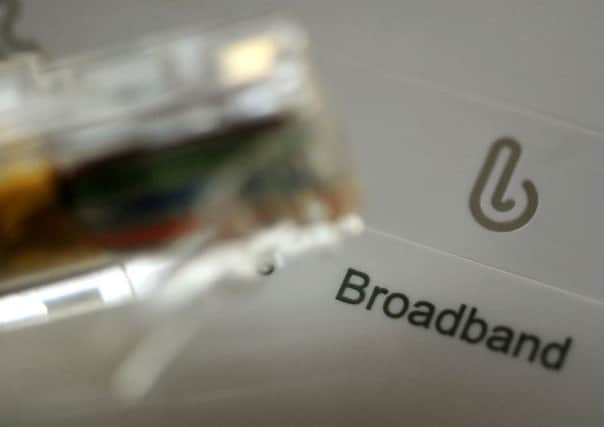Vouchers and satellites needed to get rural Yorkshire online


Fears that a minority of hard to reach families and businesses may never be given the same benefits as their city counterparts have been voiced as it emerges there is no plan for the next step in rolling out rural broadband.
The influential Environment and Rural Affairs select committee has called on the Government to start planning for the next phase after it reaches its aim for 95% coverage, with a detailed report recommending the Government starts planning for subsidised internet access in the countryside, possibly via satellite connections.
Advertisement
Hide AdAdvertisement
Hide AdCommittee chair Anne McIntosh said: “Rural areas are lagging behind. Those in poorly connected areas are sometimes asked to pay twice: once through their taxes and potentially again from their own pockets if the Broadband Delivery UK programme does not reach them.”


Her report adds that a taxpayer-funded voucher scheme to boost firms’ broadband speeds must be extended to rural areas at risk of being left behind.
Businesses in 22 cities can claim up to £3,000 for better online links but the select committee said it was unfair that farmers and others could not access the same help.
The committee said it was concerned to hear BT tell us that the present target to provide 95% of premises receiving superfast broadband by 2017 may be missed.
Advertisement
Hide AdAdvertisement
Hide AdJohn Moore, chief executive of NYnet, the group tasked with bringing broadband access to North Yorkshire, said the county would likely reach 90% coverage by the end of the year, with wider but not full coverage coming shortly after.
The pace of delivery means the region is ahead of many others, but still leaves question marks over the hardest to reach.
Mr Moore said: “As you get more rural, it is more expensive and it takes longer, we have to accept that.”
He added: “We have to ask now what we do for the hardest to reach. When you look at value for money we have ask if there are other ways to bring some level of broadband access to these households.
Advertisement
Hide AdAdvertisement
Hide Ad“But even if we are to look at subsidising satellite systems, there are massive implementation hurdles there, whether it is money or state aid rules or technology.”
Dorothy Fairburn, regional director at the Country Land and Business Association, said it was “a shame the report stopped short of calling for a Universal Service Obligation.”
She added: “It is clear that rural areas have fallen behind. If the Government is serious about levelling the playing field it must listen to MPs and prioritise hardest-to-reach areas, even if this means diverting investment into alternative technologies.”
A DCMS spokesman insisted work was under way to bring the remaining 5% of areas up to superfast speeds